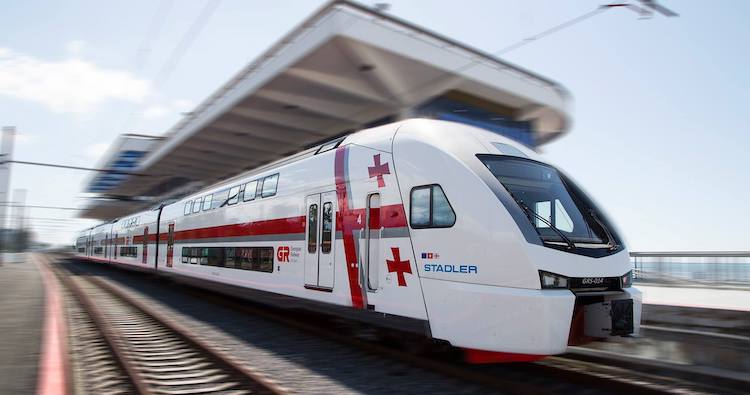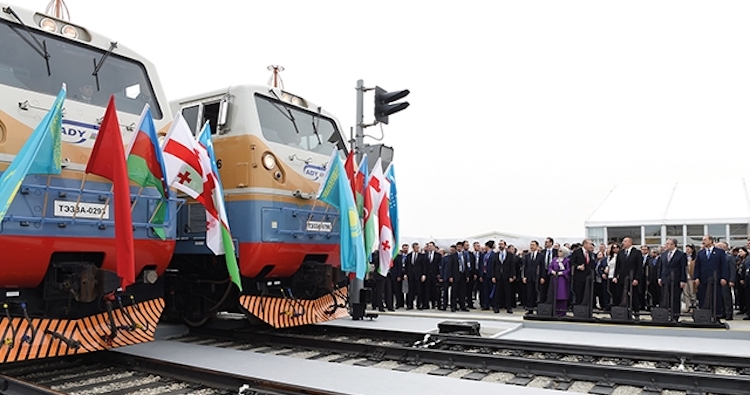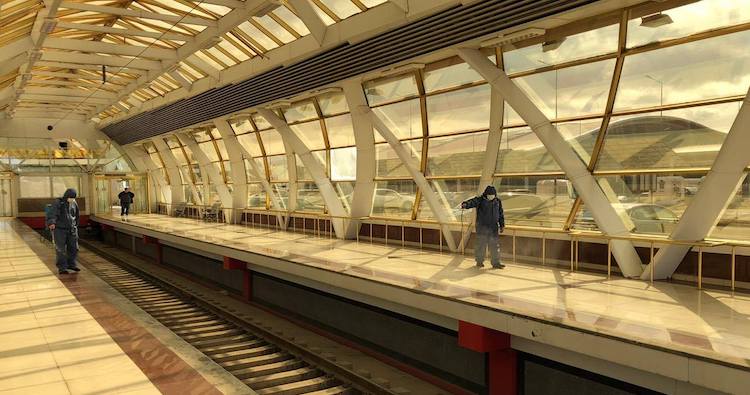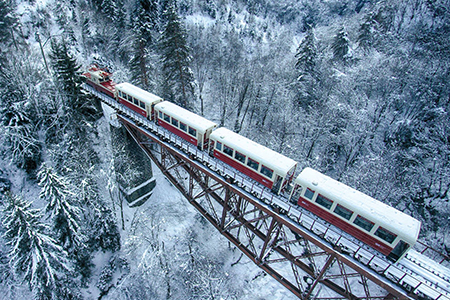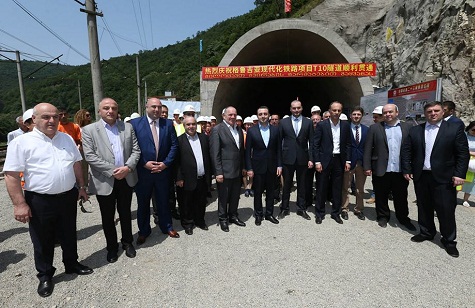See photos from Georgian railway history in EU Year of Rail celebration
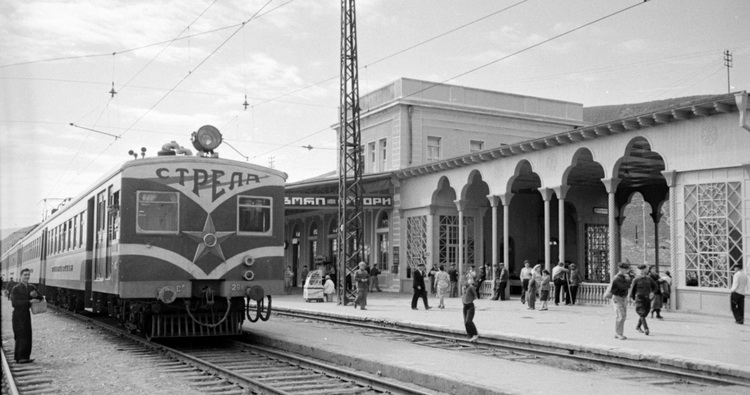
Electric train 'Strela' arriving at the Gori station in central Georgia in 1960. Photo via National Archives of Georgia.
A series of photographs showing the history of rail transportation in Georgia has been part of marking the European Union Year of Rail - a celebration promoting railways across the continent - on social media over the past two months.
Posted for social media followers of Archives Portal Europe - an online platform for information from European archival institutions - the pictures are sourced from vaults of National Archives of Georgia and were released starting in early March to kick off the portal's participation in the European Year of Rail initiative.
Among the scenes illustrated by the images are viaducts and large bridges of the Transcaucasus Railway - a major rail line built during the Imperial Russian control of Georgia to link the Black Sea coast with the Caspian Sea in the East - as seen in the 1870s and 1880s.
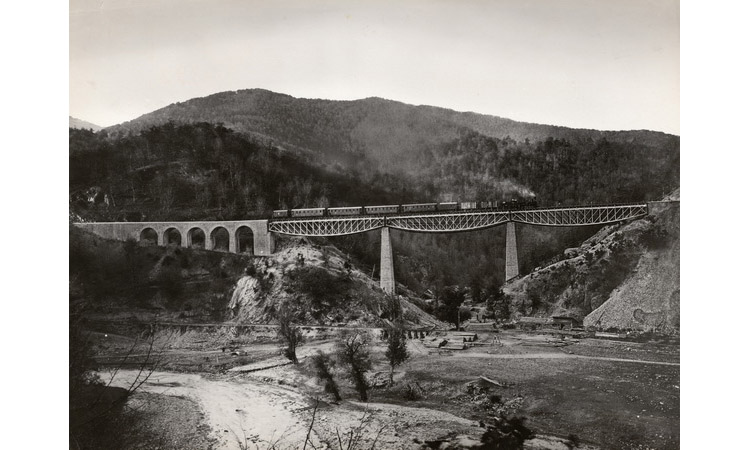
A steam locomotive seen pulling passenger cars over the Iron Bridge viaduct of the Transcaucasus Railway in the 1870s/1880s. Photo via National Archives of Georgia.
Other photos show a World War II-era steam locomotive in Tbilisi, a mass disinfection of passengers at Mtskheta Station near Tbilisi in the late 19th century, and scenes following a derailment on the Transcaucasus line in October 1900.
Find posts tagged with #APEYearofRail here
Posts with the #EUYearofRail tag can be viewed here
The photos are also published on the Archives Portal Europe Blog
Launched in late March, the European Year of Rail celebration is designed to promote railways for their sustainability and positive environmental impact, diversity of services, affordability and comfort for passengers, among other factors.
Events as part of the year-long initiative involve conferences, workshops, information days, exhibitions and more, hosted throughout the continent.
Last month, rail associations involved in the year-long programme asked the European Commission to extend the 2021 designation to the next year, due to disruptions to the celebration caused by the Covid-19 pandemic.
 Tweet
Tweet  Share
Share
